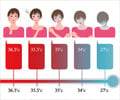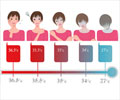- A baby who was declared dead and placed in a polythene bag in an Indian hospital was found moving hours later by family members
- Placing premature infants in polythene bags has been used to treat hypothermia
- Hypothermia (low body temperature) is a common complication in premature infants and may depress cardiac activity
After trying unsuccessfully to resuscitate him, doctors declared the boy dead and handed over both bodies in polythene bags to the grieving family members. As the family was preparing for the last rites of the babies, one of the family members felt a wriggling movement within one of the bags and found the boy to be moving and breathing.
The family rushed the baby boy named “Champ” to a nursing home where he sadly succumbed after fighting for his life for nearly five days.
Gross Medical Negligence Or Genuine Mistake?
This incident in a major hospital in India’s capital has sparked serious public outrage against the medical fraternity in general and in the hospital in particular.Both the hospital and the Indian Medical Association (IMA) have ordered separate inquiries into this incident.
KK Aggarwal, the head of the IMA, said the episode was a tragic mistake. “The difference between a mistake and negligence is deliberate action. I don’t think any doctor will do it willfully,” he said.
Problems of the Preterm Infant
Any baby born before completing 37 weeks of gestation is considered preterm. Babies born less than 32 weeks are considered very preterm.The earlier the babies are born, the less ready they are to face the challenges of the outside world and they need specialized care to overcome these. With a greater degree of prematurity, the chances of complications and mortality are also higher.
Some of the complications associated with prematurity include the following:
- Respiratory distress due to immature lungs
- Increased susceptibility to infections due to immature immune system
- Risk of hypothermia due to immature temperature regulatory mechanisms
- Hypoglycemia (low blood sugar) resulting in convulsions and longterm brain damage
- Severe neonatal jaundice and risk of brain damage
- Increased incidence of intraventricular hemorrhage with serious longterm complications
In fact, the Royal College of Obstetricians and Gynaecologists (RCOG) has published new guidelines stating that resuscitation in babies of birth weight less than 500 gms must be performed only after careful consideration.
How to Prevent Hypothermia in Premature Infants?
Premature infants are at an increased risk of hypothermia. They should be protected against hypothermia by the following measures:- Maintaining an appropriately warm environmental temperature in the labor room and newborn care area
- Drying the newborn immediately after delivery
- Swaddling full-term neonates or placing premature infants in a polyethylene bag
Following Established Norms and Protocols in Preterm Births
The WHO has established certain protocols to ensure optimal outcome in preterm births and these must be strictly adhered to by all health care professionals and establishments. This will be one of the angles of inquiry that the investigating committee will look into in this case.According to Dr Agarwal, IMA head, the inquiry committee set up has been asked to investigate if
- If the attending doctor was competent
- If the baby was really premature and what his weight was
- Was the baby in hypothermia
- Did he have a cardiac arrest?
- Was the counseling given to the relatives
- What were his chances of revival?
- Were the World Health Organisation (WHO) guidelines followed
- Did the relations sign for the resuscitation?"
Hypothermia - Double Edged Sword
Hypothermia is not always undesirable or bad. It has also been shown to have potential benefits in clinical practice.- For decades, it has been shown that therapeutic hypothermia can improve the chances of survival in cardiac patients. It is believed that the cold reduces the body’s (especially the brain cells) need for oxygen and reduces the buildup of toxic chemicals that would otherwise occur when the heart is beating and oxygen is utilized. The cooling decreases the amount of oxygen utilized, and slows down the heart rate and basal metabolic rate.
- When the temperature is appropriately controlled, it could help keep a person alive while doctors try to resuscitate the heart. The body is then rewarmed gradually over several hours.
- This procedure is also employed for full term babies who have hypoxic–ischemic encephalopathy, a condition in which they suffer a lack of oxygen and blood supply to the brain. However it is not recommended in preterm infants.
- However hypothermia is a double edged sword - if uncontrolled or used inappropriately, it can kill, as it is thought to disrupt the body’s enzyme systems and clotting mechanisms.
In conclusion, incidents such as these will hopefully serve as eye openers both to health professionals and clinical establishments to ensure that prescribed norms and guidelines are being followed in neonatal units, to employ skilled personnel well versed in neonatal care and to educate the public on the health issues and challenges surrounding preterm births and the increased risk of mortality and complications.
Source-Medindia














